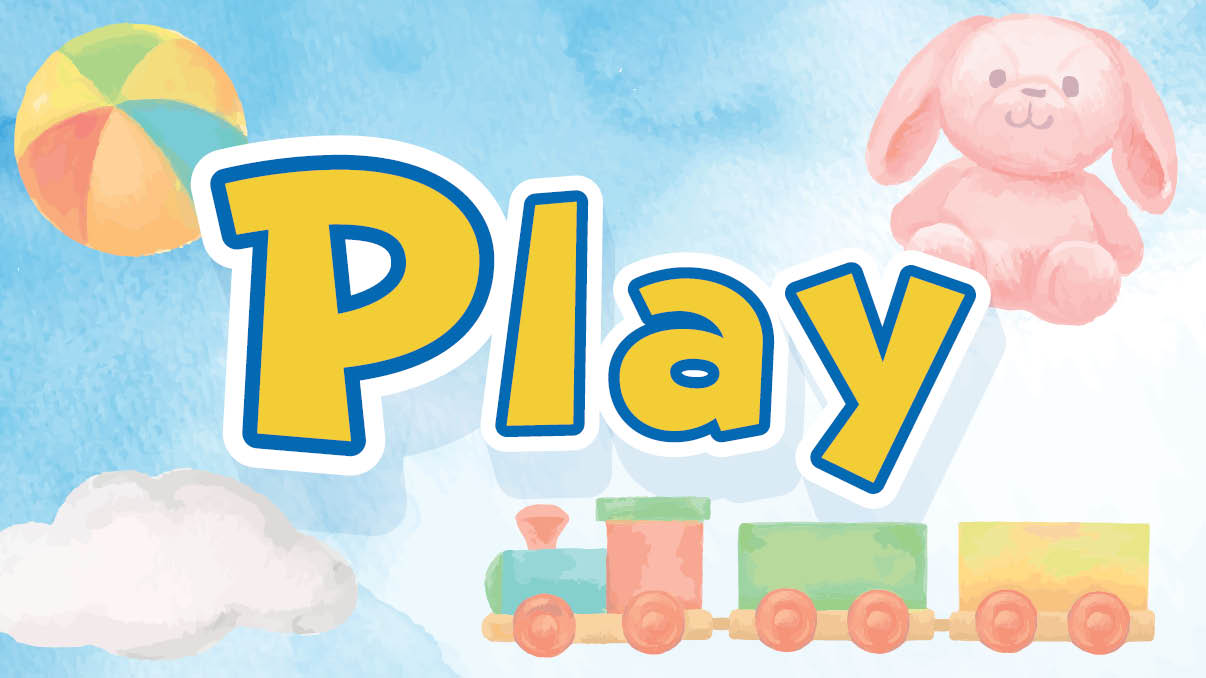The best thing about play is that children learn so much about the world around them without even realizing it. Through play, children use their imagination and a simple box can be a house, a rocket ship, or even a castle! Playing also helps children learn how they can express their thoughts and feelings, in addition to expanding their vocabulary.
Through pretend and dramatic play children build their knowledge of the world while simultaneously learning language. Play helps children with their print motivation and awareness, their letter knowledge and vocabulary, and their narrative skills; these are all building blocks for learning how to read.
Print Motivation and Awareness. If you are out at a restaurant or grocery store, give your child the menu or a grocery list to look at. This can help your child understand that print is all around them. When you play housekeeping, point out print wherever you see it to help your child recognize print on all different items. Look at maps of playgrounds or your neighborhood and point out where your home is. This can help your child understand that pictures also have meaning.
Letter Knowledge and Vocabulary. There are many ways to incorporate letter knowledge and vocabulary into everyday play. When playing with your child, if you use a new word make sure you explain what it means. This helps your child understand the world around them, as well as build their vocabulary by introducing new words or providing them with the opportunity to ask what a word means. Using a stick to draw letter in the dirt will help your child recognize letters over time.
Narrative Skills. Acting out stories or dramatic play can help your child build narrative skills by giving them opportunities to practice sequencing events. You can always ask your child what they are doing, what they are going to do next, and how they are going to do it. By asking questions during play, you are providing your child with the opportunity to practice their oral language, and you are also helping build their narrative skills.
Games you can play with Babies
- Sing “Head, Shoulders, Knees and Toes” while touching the corresponding body parts.
- Stack blocks with your child and then knock them down and say “uh oh” and wait to see your child’s response.
- Hold a block to your ear and babble/talk into the block as if it was a phone.
- Blow bubbles and pop them together.
- Roll the ball towards your baby when they are practicing tummy time or sitting up.
Games you can play with Toddlers
- Use old carboard boxes to create a fort to play in. You can decorate and talk about what you’re building together.
- Use puppets or stuffed animals to recreate a story or make up your own story.
- Puzzles are great for play and working on your toddler’s cognitive and fine motor skills.
- Create a racetrack on the floor using tape, then have your toddler drive their vehicles on it by staying on the line.
- Go outside and draw shapes with chalk, or draw a chalk obstacle course you can do together.
Games you can play with Preschoolers
- Create your own memory game by drawing images on paper squares. When turning over the paper squares ask your child what the image is.
- Have a restaurant night and create menus to order from at home.
- Pretend you are going on a road trip and check maps to see where you are going.
- Make your own museum by having your child create art with labels to display around the house.
Another great way to get play into your daily routine for all ages is to go outside and play. Regardless of how you play with your child, remember: if you’re having fun, they are having fun too!
